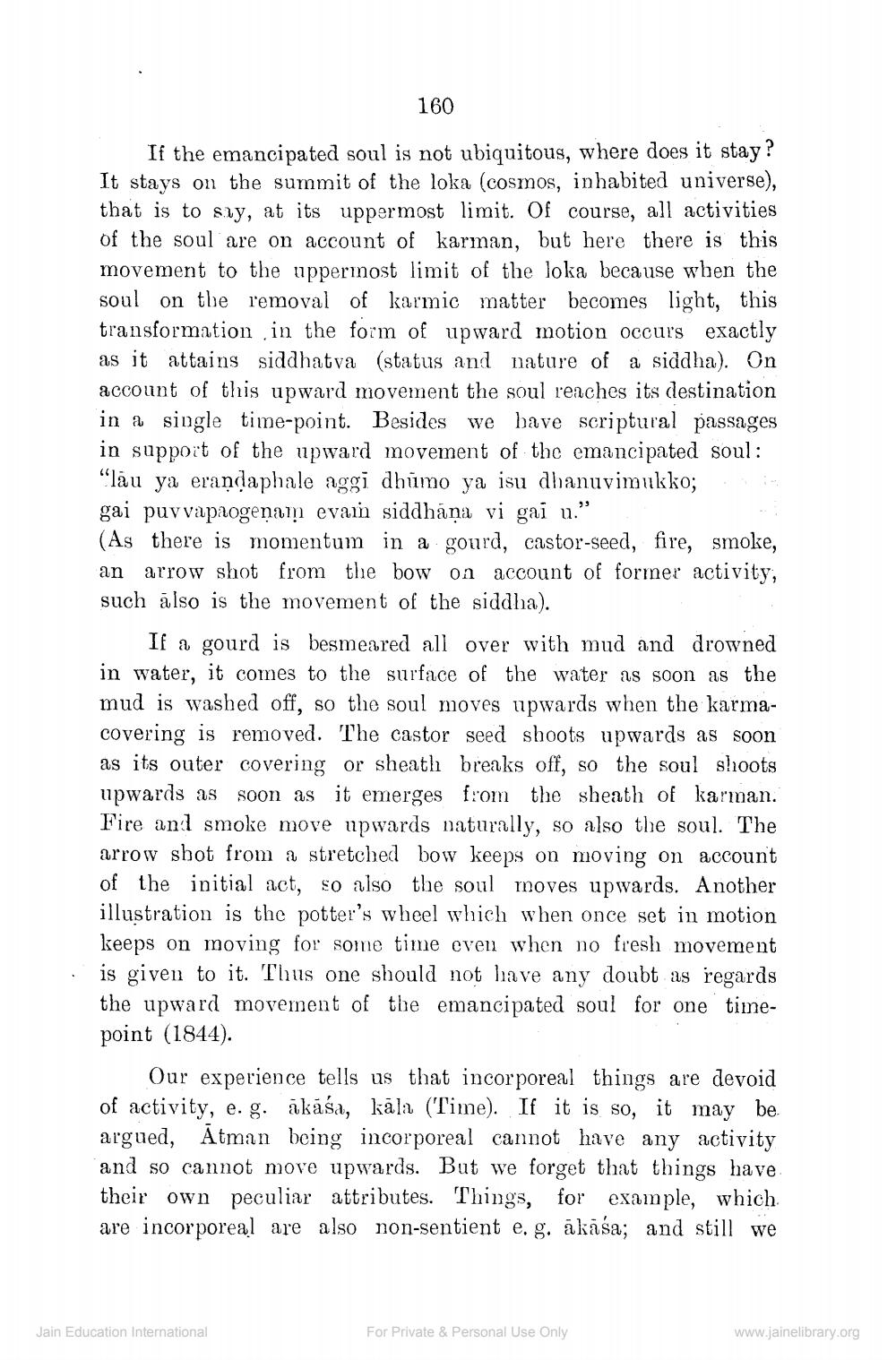________________
160
If the emancipated soul is not ubiquitous, where does it stay? It stays on the summit of the loka (cosmos, inhabited universe), that is to say, at its uppermost limit. Of course, all activities of the soul are on account of karman, but here there is this movement to the uppermost limit of the loka because when the soul on the removal of karmic matter becomes light, this transformation in the form of upward motion occurs exactly as it attains siddhatva (status and nature of a siddha). On account of this upward movement the soul reaches its destination in a single time-point. Besides we have scriptural passages in support of the upward movement of the emancipated soul: "lau ya erandaphale aggi dhūmo ya isu dhanuvimukko; gai puvvapaogenam evain siddhana vi gai u." (As there is momentum in a gourd, castor-seed, fire, smoke, an arrow shot from the bow on account of former activity, such also is the movement of the siddha).
If a gourd is besmeared all over with mud and drowned in water, it comes to the surface of the water as soon as the mud is washed off, so the soul moves upwards when the karmacovering is removed. The castor seed shoots upwards as soon as its outer covering or sheath breaks off, so the soul shoots upwards as soon as it emerges from the sheath of karman. Fire and smoke move upwards naturally, so also the soul. The arrow shot from a stretched bow keeps on moving on account of the initial act, so also the soul moves upwards. Another illustration is the potter's wheel which when once set in motion keeps on moving for some time even when no fresh movement is given to it. Thus one should not have any doubt as regards the upward movement of the emancipated soul for one timepoint (1844).
Our experience tells us that incorporeal things are devoid of activity, e.g. akāśa, kāla (Time). If it is so, it may be argued, Atman being incorporeal cannot have any activity and so cannot move upwards. But we forget that things have their own peculiar attributes. Things, for example, which are incorporeal are also non-sentient e.g. äkāśa; and still we
Jain Education International
For Private & Personal Use Only
www.jainelibrary.org




